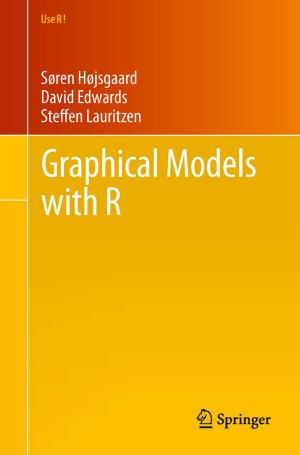Is Science Compatible with Free Will?
Exploring Free Will and Consciousness in the Light of Quantum Physics and Neuroscience
Nonfiction, Science & Nature, Science, Other Sciences, Philosophy & Social Aspects, Health & Well Being, Psychology, Cognitive Psychology| Author: | ISBN: | 9781461452126 | |
| Publisher: | Springer New York | Publication: | December 22, 2012 |
| Imprint: | Springer | Language: | English |
| Author: | |
| ISBN: | 9781461452126 |
| Publisher: | Springer New York |
| Publication: | December 22, 2012 |
| Imprint: | Springer |
| Language: | English |
Anyone who claims the right ‘to choose how to live their life’ excludes any purely deterministic description of their brain in terms of genes, chemicals or environmental influences. For example, when an author of a text expresses his thoughts, he assumes that, in typing the text, he governs the firing of the neurons in his brain and the movement of his fingers through the exercise of his own free will: what he writes is not completely pre-determined at the beginning of the universe. Yet in the field of neuroscience today, determinism dominates. There is a conflict between the daily life conviction that a human being has free will, and deterministic neuroscience. When faced with this conflict two alternative positions are possible: Either human freedom is an illusion, or deterministic neuroscience is not the last word on the brain and will eventually be superseded by a neuroscience that admits processes not completely determined by the past. This book investigates whether it is possible to have a science in which there is room for human freedom. The book generally concludes that the world and the brain are governed to some extent by non-material agencies, and limited consciousness does not abolish free will and responsibility. The authors present perspectives coming from different disciplines (Neuroscience, Quantumphysics and Philosophy) and range from those focusing on the scientific background, to those highlighting rather more a philosophical analysis. However, all chapters share a common characteristic: they take current scientific observations and data as a basis from which to draw philosophical implications. It is these features that make this volume unique, an exceptional interdisciplinary approach combining scientific strength and philosophical profundity. We are convinced that it will strongly stimulate the debate and contribute to new insights in the mind-brain relationship.
Anyone who claims the right ‘to choose how to live their life’ excludes any purely deterministic description of their brain in terms of genes, chemicals or environmental influences. For example, when an author of a text expresses his thoughts, he assumes that, in typing the text, he governs the firing of the neurons in his brain and the movement of his fingers through the exercise of his own free will: what he writes is not completely pre-determined at the beginning of the universe. Yet in the field of neuroscience today, determinism dominates. There is a conflict between the daily life conviction that a human being has free will, and deterministic neuroscience. When faced with this conflict two alternative positions are possible: Either human freedom is an illusion, or deterministic neuroscience is not the last word on the brain and will eventually be superseded by a neuroscience that admits processes not completely determined by the past. This book investigates whether it is possible to have a science in which there is room for human freedom. The book generally concludes that the world and the brain are governed to some extent by non-material agencies, and limited consciousness does not abolish free will and responsibility. The authors present perspectives coming from different disciplines (Neuroscience, Quantumphysics and Philosophy) and range from those focusing on the scientific background, to those highlighting rather more a philosophical analysis. However, all chapters share a common characteristic: they take current scientific observations and data as a basis from which to draw philosophical implications. It is these features that make this volume unique, an exceptional interdisciplinary approach combining scientific strength and philosophical profundity. We are convinced that it will strongly stimulate the debate and contribute to new insights in the mind-brain relationship.















